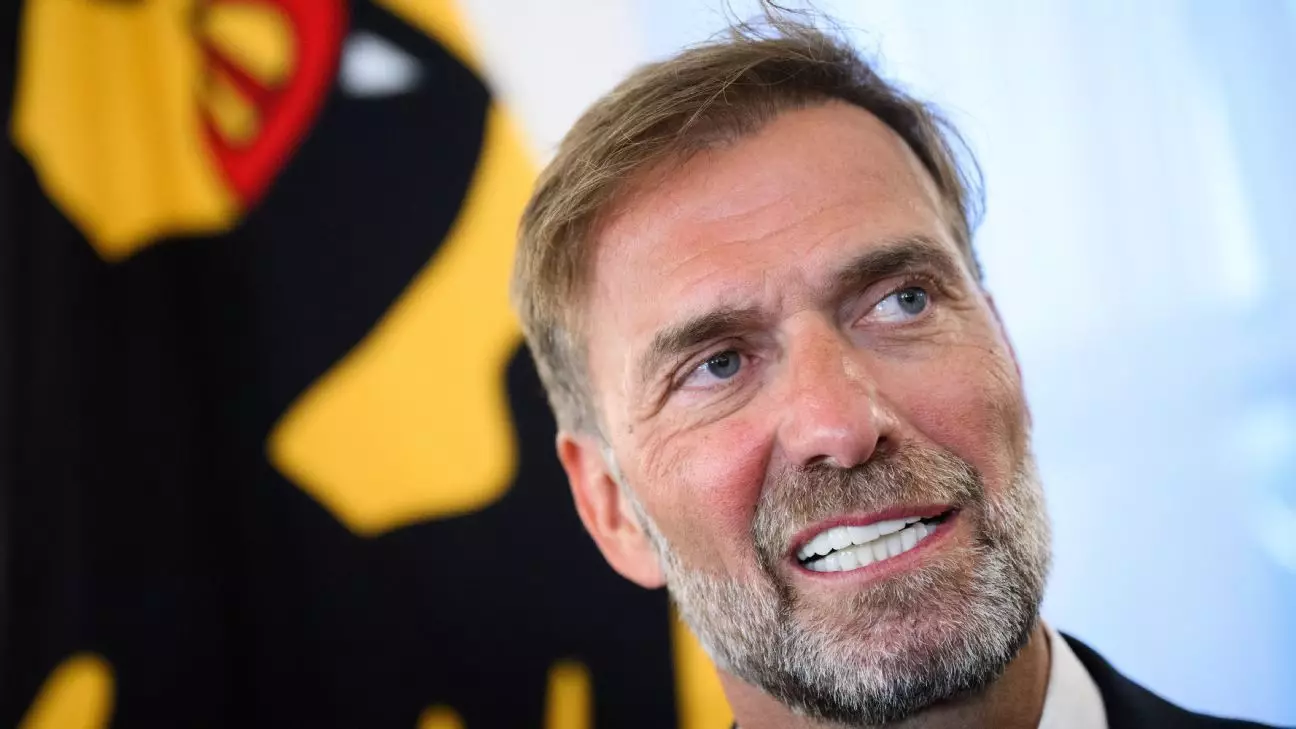Jürgen Klopp, one of football’s most charismatic and successful managers, recently announced his unexpected shift to lead Red Bull’s global football operations. This move comes after a storied career, including his significant tenure at Liverpool, where he solidified his legacy with major silverware. The decision has elicited a mixed response from football fans, particularly those loyal to his former clubs in Germany, creating a dynamic discourse around loyalty, corporate influence in football, and personal career aspirations.
Klopp’s career has been characterized by deep connections to the clubs he has managed. His heartfelt comments about not wanting to “step on anybody’s toes” illuminate the emotional complexities inherent to football culture. Fans often perceive managerial changes not merely as professional shifts but as personal betrayals. The backlash he has faced from supporters of Borussia Dortmund, in particular, highlights the emotional investment fans have in their clubs and their histories. Klopp’s tenure at Dortmund was marked by exhilarating successes, including two Bundesliga titles and a Champions League final appearance, which has made him an enduring figure in their lore.
The resentment that has surfaced from fans in response to Klopp’s move to Red Bull is indicative of broader tensions within the football community. The notion of a corporate entity, like Red Bull, encroaching on the traditional values of the sport raises eyebrows. Fans from his previous clubs have expressed their discontent through banners and social media, questioning Klopp’s judgment. It poses the question: what does loyalty entail when opportunities arise that seem to conflict with the emotional sentiments of devoted supporters?
Red Bull’s involvement in football has been contentious, especially in Germany. Their model, which has been criticized for prioritizing commercial success over traditional club values, has made them a target for detractors. Fans often argue that clubs like RB Leipzig symbolize the commercialization of the sport, undermining the essence of football as a community-driven endeavor. Klopp’s defense of Red Bull, where he asserts that their initiatives have revitalized football in the former East Germany, provides a nuanced perspective that contrasts sharply with the prevailing sentiments among hardcore supporters.
His prior reflection on Red Bull’s role in facilitating high-level competition in Eastern Germany adds depth to his rationale. The transformative effect of investments made by such corporations cannot be dismissed, yet they must be balanced against the traditional values that fans hold dear. In Klopp’s view, his new position may allow him to help shape a sympathetic approach to the club’s operations, promoting a model that integrates corporate resources with grassroots appreciation.
Klopp’s assertion that he never envisioned Red Bull’s involvement in football “so critically” suggests an evolving perspective. After exiting Liverpool, where he bid adieu at the end of a fulfilling nine-year tenure, Klopp indicated a desire for a “long break.” However, the allure of Red Bull’s global operations proved compelling enough to alter his initial plans. This career pivot begs reflection on the nature of modern coaching roles, particularly in how they intertwine with corporate entities in football.
Klopp seeks to position himself as an “adviser” rather than a traditional coach, emphasizing that coaches can often feel isolated within their organizations. By stepping into a role that fosters collaboration among various clubs under the Red Bull umbrella, Klopp might redefine what it means to be a leader in this ever-evolving landscape. His insights into the nature of coaching dynamics within clubs could potentially impact how management operates, offering a much-needed support system for coaches who may feel overwhelmed by the pressures of performance.
Jürgen Klopp’s transition to Red Bull’s football division signifies not only a personal milestone but also an unfolding narrative within the larger context of football’s corporate landscape. It raises philosophical questions about loyalty, identity, and governance in sports, particularly in an era where financial muscle often dictates success. Klopp’s journey reflects the challenges that modern managers face in reconciling personal ambitions with the emotional ties of supporters. Whether he succeeds in harmonizing these competing elements will be a critical watchpoint as both his career and the broader landscape of football evolve. Ultimately, his foray into this new role may well reshape perceptions about the possibilities of collaboration in a business often criticized for its lack of soul.


Leave a Reply